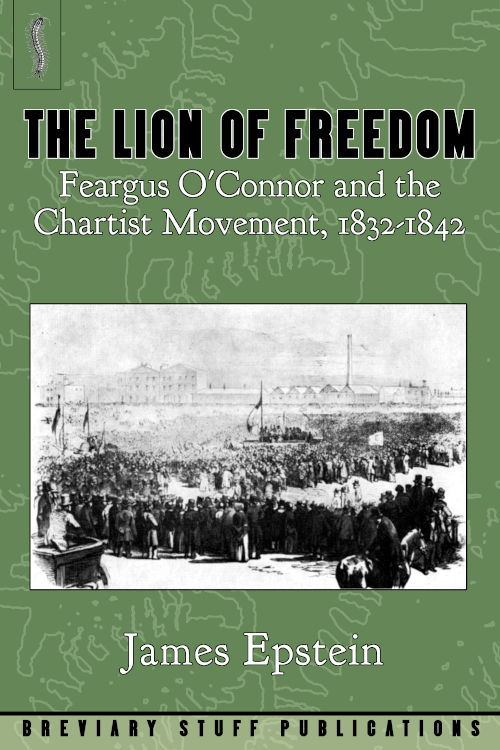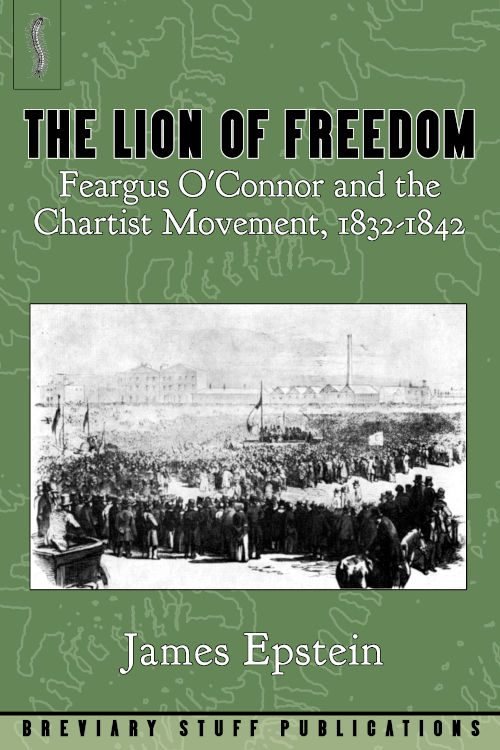- Preface
- Acknowledgements
- 1 The Constitutionalist Idiom
- 2 Narrating Liberty’s Defence
- T. J. Wooler and the Law
- 3 Understanding the Cap of Liberty
- Symbolic Practice and Social Conflict in Early-Nineteenth-Century England
- 4 Reason’s Republic
- Richard Carlile, Zetetic Culture, and Infidel Stylistics
- 5 Rituals of Solidarity
- Radical Dining, Toasting, and Symbolic Expression
- Notes
- Index
James Epstein – The Lion of Freedom
£17.00
This book offers an evaluation of the political leadership of Feargus O’Connor, the most prominent leader of the Chartist movement.
This study covers the period from 1832-1842 — from O’Connor’s election to Parliament through to the establishment of his ascendency over the national leadership of the Chartist movement. Central to this study is a consideration of the principal institutions of national radical leadership, organisation and agitation — the platform and the mass demonstration, the Chartist Press and National Charter Association. While O’Connor came to prominence in the familiar role of the radical gentleman orator at the mass demonstration which heralded the advent of Chartism, he was able to turn his appeal as a charismatic demagogue towards the creation of more permanent and democratic forms of working-class organisation and leadership.
Not simply a political biography of O’Connor, this book offers a general history of Chartism and provides an interpretive framework for understanding this complex political movement.





